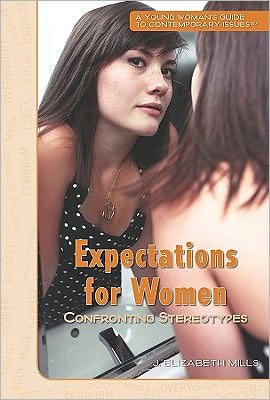

Remember you can help your partner grow, but you can't change who they are.Marriage is new for both of you, so it's important to have patience as you adjust to your new roles and responsibilities. Give yourself and your partner time to adapt.False expectations can get the better of your relationship, if for example, you expect your partner to live up to what you see in romance movies. Instead, discuss what you feel is happening and how you can work together as a couple to bridge the gap. The blame game will only exacerbate any struggles you and your partner are having. After all, unmet or unrealistic expectations can create significant stress in your relationship. From household responsibilities to sexual intimacy, it's important to discuss what you expect from your partner.

Do your best to maintain a constructive attitude and mutual respect, and be willing to recognize your partner's point of view. While conflict is inevitable, how you handle conflict can make the difference in your marriage. Understanding and respecting these differences will help you avoid judgement and improve your relationship. While your core values are likely the same, your spouse's thoughts and beliefs may differ from your own. For example, can they drop by unannounced or do you expect a phone call or text first? Have a conversation with your spouse about what's okay and what's not okay as far as involvement from your in-laws. While most couples typically have sex once a week, it's important to figure out what works for you to maintain intimacy. Even when life gets busy and hectic, keeping your sex life healthy needs to remain a priority. While together time is important, you also need quality time outside of your relationship for personal growth and independence. Keep in mind that you will likely have to reevaluate the list from time to time. Dividing up household chores fairly can eliminate stress in your home and ensure a happy marriage. Either way, never lie honesty is key when it comes to avoiding conflicts over money. Discuss whether you want to manage your finances separately, jointly, or with a combination of separate and joint accounts. These factors, combined with the rise in the number of people staying in education and not in full-time work, may be factors in encouraging young adults to remain living with their parents. During this period, the costs of both renting and buying homes have increased, and the average ages of getting married and having children have risen. By 2017, there were more young adults living with their parents (32% of 18- to 34-year-olds). In 1997, the most common living arrangement for young adults was as a couple with one or more children (29% of 18- to 34-year-olds). Data do not include students living in halls of residence. It may also include those in a one-person family but who live with others in their household. “Other” may also contain those who are the head of the family unit or the partner of the head of the family unit, but not the head of the household, or the partner or cohabitee of the head of the household. Note: “Other” includes people in multi-family households (these contain at least two families). Women have outnumbered men at university since the mid-1990sĪccepted applicants to higher education via UCAS, UK, 1994 to 2018 One possible explanation is the growing gap in educational achievement between girls and boys. While the number of men applying to higher education increased by two-thirds between 19 (up 66%), the number of women applying more than doubled (up 129%). Since the mid-1990s, women have outnumbered men on both undergraduate and postgraduate courses, and this gap between the sexes is widening. On average, women stay in full-time education around half a year longer than men, mainly due to the larger number of women going to university. Around a third of 18-year-olds now go to university (PDF, 1.4MB), compared with a quarter in 2006. However, the main explanation is the big increase in the number of people choosing to remain in education beyond age 18. In part, this can be explained by official changes to the age at which you are expected to stay on in education – in 2015, this changed to 18 for students in England. Between 19, the average age people left full-time education increased from 17.8 years to 19.3 years. This is largely because more people are staying on at schools and colleges, and progressing to university.


 0 kommentar(er)
0 kommentar(er)
